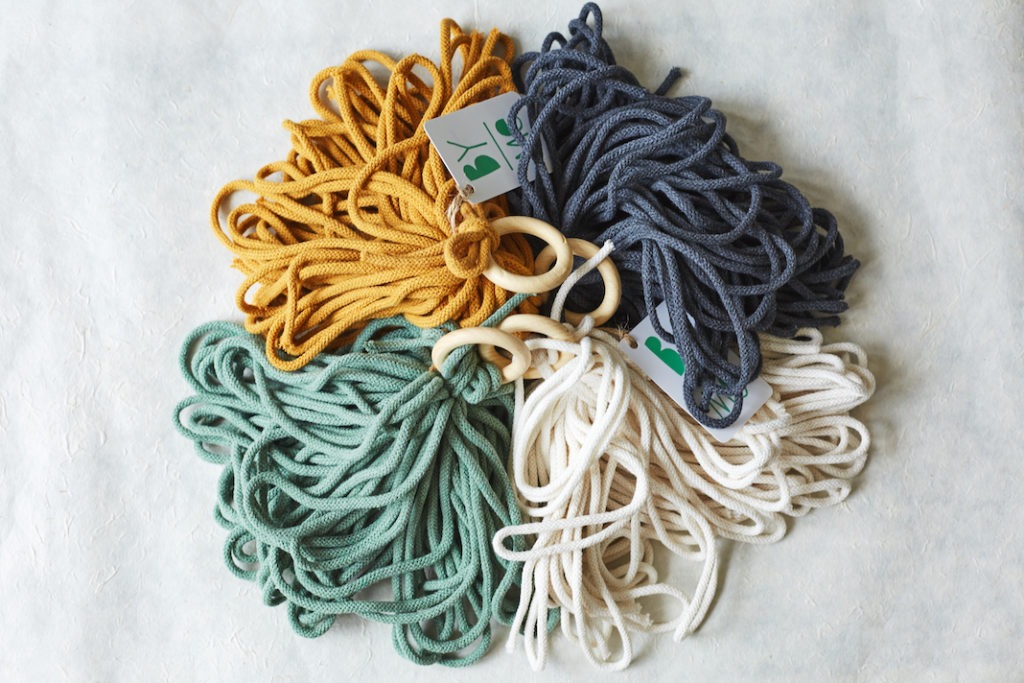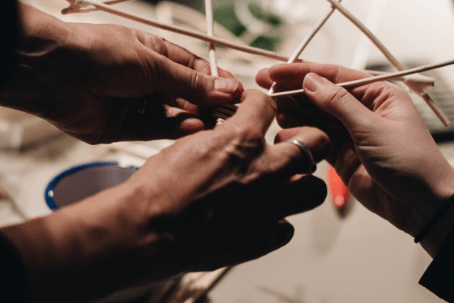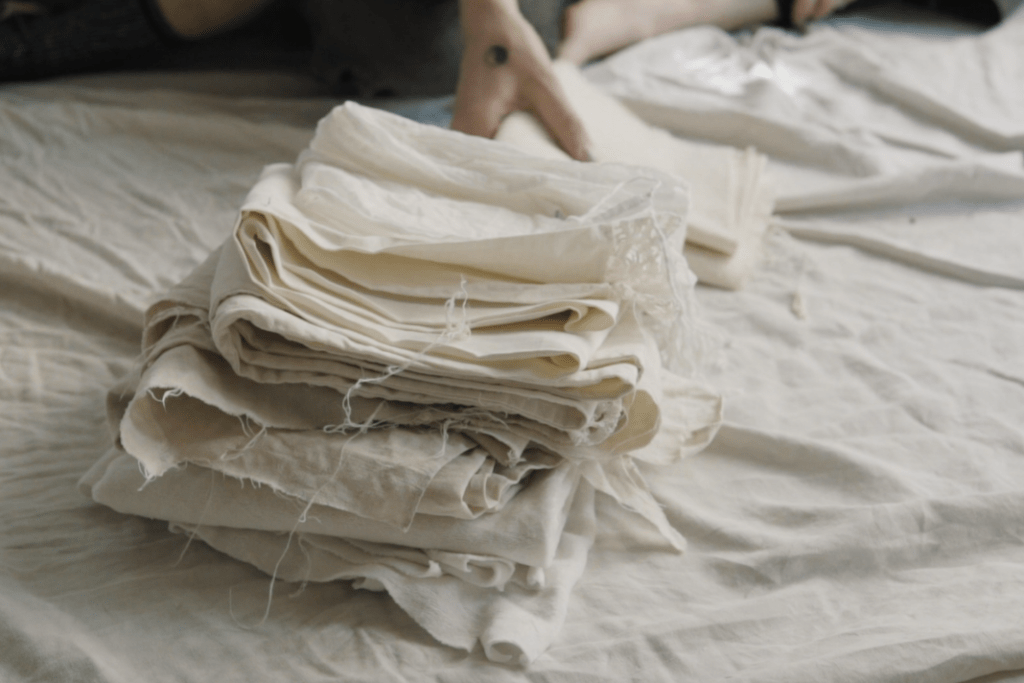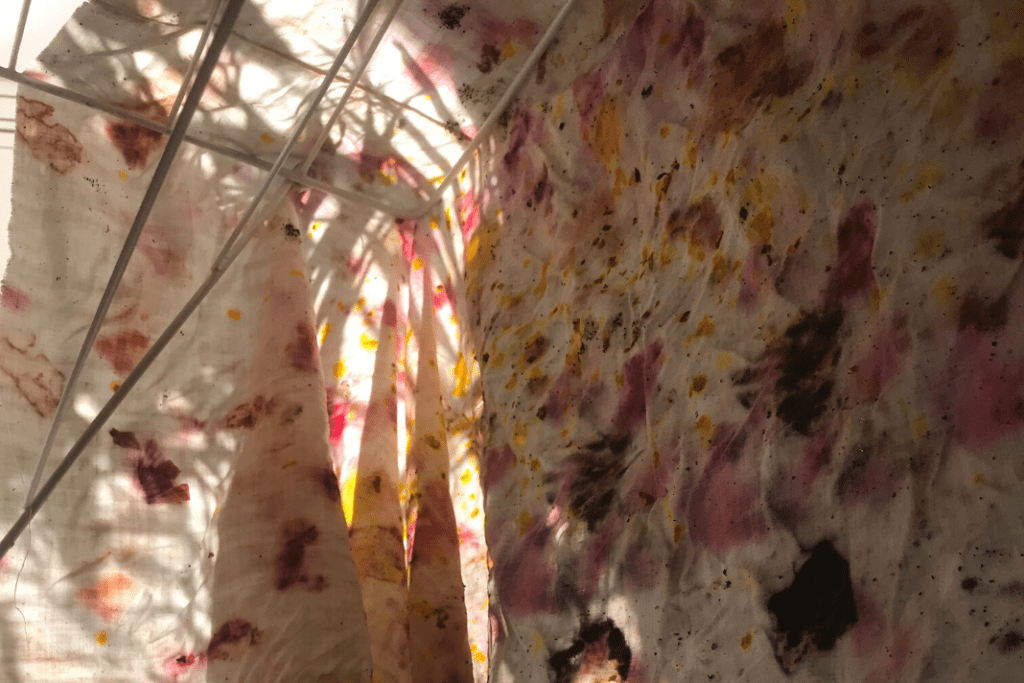With rising mental health issues and the debilitating effects of loneliness caused by isolation, people are turning to crafts as a way to support their mental wellbeing. During the pandemic, a huge influx of people have been joining the digital platform, Yodomo, that provides a range of online craft workshops taught by professional artists.
What is Yodomo?
Yodomo stands for ‘You Do More.’ The learning platform offers a range of online craft courses and kits which have been carefully curated by leading professional artists. It is about improving people’s wellbeing through participation in making and crafts, sharing each other’s skills and supporting professional makers.
Who inspired your love of craft and making?
My mum was a prolific maker, she was a seamstress by trade, but she was also a painter. Everything was hand-made in the house. She was always making use of left-over materials, not throwing things away but fixing them. I felt like our generation were no longer engaged in making and had lost interest in learning craft skills because we had become dependent on consumerism.
Why did you decide to launch Yodomo?
I wanted to build an online platform where makers could share their creative skills through high quality content that was carefully curated. In 2017 one of our key objectives was to find a way to support professional makers to generate revenue. For a lot of artists, they need time to work in their studio with space for ideas, making and selling. Our aim is to train people to make their own content as quickly and as efficiently as possible whilst still retaining high quality footage.
Why do you think there is a growing trend of MIY (Make it Yourself)?
There are a number of macro trends responsible for the rise in MIY. Firstly, there is a heightened curiosity about how things are made. We are far more conscious about what we buy and how we might reuse materials we already have. There is also a wider understanding that participating in creativity and the arts can help to support our mental health. Lastly, I think there is a post-digital desire to make something tangible, to get back to using our hands. Easier-to-use technology has also made it far more accessible to a wider group of makers to share and teach their craft skills.
What is ‘Making A Living’?
Back in March 2020, we wanted to support creatives by providing a free workshop on how to make your own course. The idea being that it didn’t matter if you were going to host it on our platform or on someone else’s; we wanted to help you transfer your live workshop into an online workshop so that you can create revenue during this difficult time. We are now taking this further and growing this content with a series of free mentoring workshops such as ‘How To Shoot Your Course’ and ‘How To Conduct Your Own Live Webinar.’
Do you think the pandemic has resulted in a new wave of digital skills for makers?
Before Covid we filmed everything, however when lockdown hit many creatives let go of their fears when it came to producing their own digital content. They realised that it was the only way they could communicate with their audience and reach a wide network of people. Since the pandemic, all our professional makers have been shooting their workshops themselves using their phones. We will step in if there is a problem with editing or audio.
What was the Hackney ‘Wick Together’ Initiative?
We were supported by a new fund set up by the Mayor of London’s Creative Enterprise Zone that aims to help local creative communities by delivering training and courses. As part of the initiative, we mentored nine local makers where we taught them to shoot content, curate their own course and increase their social media presence. There is a lot of stigma regarding self-promotion as an artist, so our hope is that we have provided each maker with a valuable set of digital skills that will enable them to monetise their creative projects. An important part of the programme was to get them to think about inclusivity and how can they share their craft by creating clear and accessible content to those who have never learnt their skill before.
Could you talk about the relationship between mental health and craft?
Before the pandemic, the British Medical Association committee and the NHS were given a mandate to explore social prescribing on a national scale. The Royal College of Psychiatrists have been looking very seriously at this holistic approach of prescribing an activity rather than a medical drug. I am really interested to see how the social prescribing movement develops and keen to see how Yodomo can participate in this initiative.
Back in 2019, we worked with QConsult (Queen Mary University of London) to devise a framework that accurately proves that when you engage in a craft it reduces social isolation, helps to control anxiety levels and overall improves your mental health.
Were you involved in the Let’s Craft Appeal?
This initiative was organised by the Crafts Council; they wanted to raise funds in order to support children across the country by giving them access to art materials and creative activities in their home during lockdown. At Yodomo, we packed up 1000 papercraft kits with a series of artwork sheets organised by illustrator Isabella Mitchell and the bookbinder Hanbury Press.
What is the focus for Yodomo going forward??
From the autumn, Yodomo HQ is moving to the Design District in Greenwich. There will also be a studio space for makers which will give creatives the opportunity to produce high quality digital content. We will run our ‘Making a Living’ programme from the Design District, with regular events to help craftspeople develop new skills so that they can grow their own business.
My aim is to provide a wider access to those who would never have had the opportunity to try craft activities. Sustainability must also be at forefront; we want to try to get people to think about more about the materials they are using and teach people ‘to make do and mend’. I would like us to get to the stage where we no longer have to send kits, instead we can teach them to reuse their offcuts.
‘Making a Living’ 2020 was supported by Arts Council England



